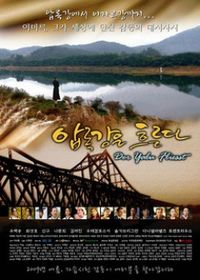
Amnok River Flows (2008)
Also Known As:
Country:Korean
Genres:Drama
Status:Completed
Date aired:2008
Summary:
They called him ?Mireuk,? Korean for Maitreya, the future incarnation of Buddha, born to save us all from oblivion. In the Later Three Kingdoms period, that was the moniker attached to Gung Ye, one of the biggest names to eventually pave the way (at his expenses) for the birth of Goryeo. But I guess Lee Mi-Reuk?s (or, if you prefer the slightly sinicized version of his name, Li Mirok) parents didn?t have such grandiose plans when they gave him that name. Born into a family of noble literati, Lee witnessed the disintegration of that Joseon (and the following Korean Empire) which had held strong for five centuries, finally collapsing in the name of Japanese imperialism. Unable to find his voice in the increasingly changing colonial Korea of the 1920s, young Li crossed the famous river dividing the Korean peninsula from Manchuria, the Amnok (Yalu, as they spell it on the other side), and set sail for what he considered the promised land, Europe. What he found wasn?t exactly a paradise, considering his new home away from home was the same Germany which would soon begin the path to the Gro?deutsches Reich, better known as the Third Reich, with the infamous Fuhrer Adolf Hitler on top. But what Li Mirok managed to do was impressive: his memoirs Der Yalu Flie?t, where he narrated stories of his childhood and all the peaceful atmosphere which painted his early days, was one the biggest literary shock in Germany at the time, enough that parts of the novel were added to German textbooks, giving him a place in the pages of history. The first co-production between Korea and Germany, made to celebrate the 125th year of diplomatic relations between the two countries, ???? ??? (Der Yalu Flie?t) is not only a very faithful adaptation of the original (the first episode is more or less the novel?s content, while the remaining two talk about the rest of Li?s life in Germany), but also a throwback to the great period dramas of the early to mid 90s, like ????? (Kareisky) and ??? ??? (Eyes of Dawn). Its slow paced and poetic prose might feel out of place in today?s K-drama industry, so preoccupied with shallow glitz and glamour, but it?s with substance and narrative fundamentals that this drama succeed on almost all accounts, as one of the best overlooked gems of the year.

